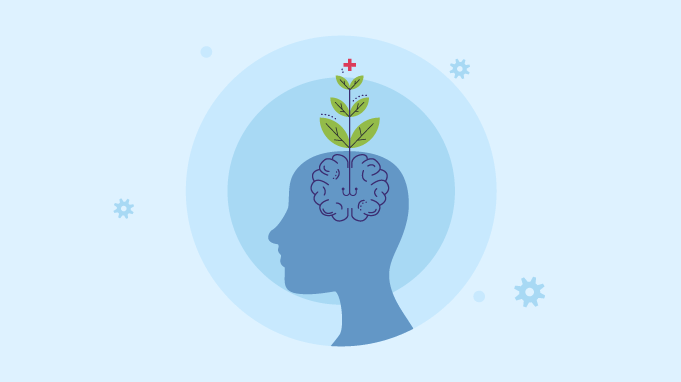Learn How to Cultivate Core Needs and Overcome Negativity Bias Through Online Therapy in Canada
Are you often dealing with negative thoughts and wanting to improve your mood? At Wellspring Counselling Inc., we know how mental habits can affect your overall well-being.
Based on Dr. Rick Hanson’s work, this blog post will discuss practical ways to change your mental habits positively. We will focus on countering negativity bias and nurturing core safety, satisfaction, and connection needs.
Table of Contents
Changing the Focus and Contents of Your Mind
Your thoughts can significantly impact your mood and mental well-being. Changing what you focus on and think about can help boost your mood and overall mental health.
Here are some practical exercises to help you foster positive change in your mental habits:
Mindfulness Meditation (5 minutes, 2-3 times per day)
Practice mindfulness meditation for 5 minutes, 2-3 times a day. Find a quiet place, sit comfortably, and focus on your breath. When thoughts and emotions arise, notice them without judgment and gently return your focus to your breath. Mindfulness meditation can help you become more aware of your thoughts and feelings, making it easier to change your mental habits.
Gratitude Journaling (10 minutes, once per day)
Remember to focus on the positive by writing in a gratitude journal for 10 minutes daily. Write down three things you are thankful for: happy moments, satisfying experiences, or meaningful relationships. This will help you develop the habit of noticing and appreciating the good things in your life.
Positive Affirmations (5 minutes, 2-3 times per day)
Positive statements, known as affirmations, can help you change negative thoughts and become more positive. To do this, list affirmations that feel true to you, like “I am capable” or “I can overcome challenges.” Repeat these statements to yourself for five minutes, two to three times a day.
Visualize Success (10 minutes, once per day)
Remember to spend 10 minutes daily visualizing yourself succeeding in different areas of your life, like relationships, career, or personal development. This can help you build confidence and have a positive outlook on life.
Countering Negativity Bias with Dr. Rick Hanson's Work
Renowned psychologist and author Dr. Rick Hanson has extensively studied the human brain’s tendency to focus more on negative experiences than positive ones due to evolutionary reasons. This can lead to a pessimistic outlook and worsen feelings of anxiety, stress, and depression.
Dr. Hanson’s work provides valuable insights into overcoming this negativity bias and improving mental well-being.
Take in the Good (5 minutes, 2-3 times per day)
Dr. Hanson says we can balance our tendency to focus on the negative by actively concentrating on positive experiences and “embracing the good.” Take five minutes, two to three times daily, to think about positive things that happened in your day or week. Let yourself fully feel the positive emotions and sensations connected to these experiences, and picture them in your brain and body.
Cultivating Core Needs: Safety, Satisfaction, and Connection
Dr. Hanson stresses the importance of meeting our basic needs for safety, satisfaction, and connection to enhance our mood and overall well-being.
Here are some practical ways to nurture these needs in your daily life:
Cultivate safety (15 minutes, once per day)
Create a sense of safety by focusing daily on activities that help you feel secure. This can include relaxation techniques, deep breathing exercises, or repeating reassuring affirmations. You can also create a safe space in your home where you feel comfortable and protected.
Pursue satisfaction (30 minutes, once per day)
To feel satisfied, focus on doing things that make you feel good about yourself, bring you joy, or help you grow. Spend at least 30 minutes each day doing things important to you, like your hobbies, learning new things, or working towards your goals.
Foster Connection (30 minutes, once per day)
Adjusting your daily routine to connect with others in person, on the phone, or online is crucial for your mental and emotional well-being. Contact friends and family at least 30 minutes daily or join online communities and support groups.
By doing this, you can change your mindset and improve your mood. Remember to focus on feeling safe, satisfied, and connected to lead a healthy and happy life.
Improve Your Well-Being & Transform Your Mood Through Online Counselling in BC
At Wellspring Counselling Inc., we are committed to supporting your mental health journey. If you’re interested in exploring online counseling in BC, our team of experienced therapists is here to help. Request a 10-Min Free Consultation to learn more about our services and take the first step towards a brighter, more positive future.




